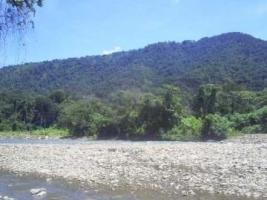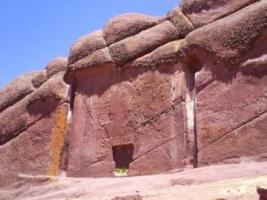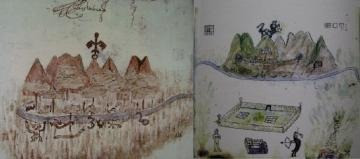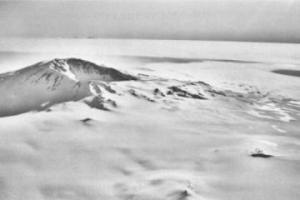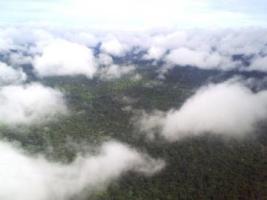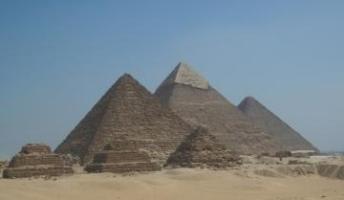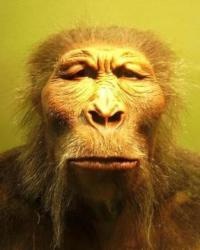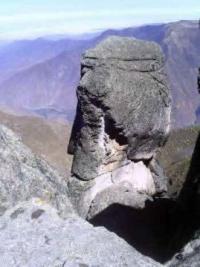Copy Link
Add to Bookmark
Report
Short Talk Bulletin Vol 09 No 02

SHORT TALK BULLETIN - Vol.IX February, 1931 No.2
WHAT DO YOU KNOW ABOUT MASONRY?
by: Unknown
NOTE: With the permission of the Worshipful Master, this Bulletin
should be read as an examination of the Masonic knowledge possessed
by the brethren. Read a question, and ask the brethren to answer it.
If the answer is correct, pass to the next question; if the speaker
is incorrect, or not sufficiently clear in his explanation, read the
answer, prefacing it with the statement: This Bulletin gives the
correct answer as . . . . .etc.
This Bulletin forms a stunt for the amusement and edification of
the brethren. It can be made to cover an hour, or an hour and one-
half of entertainment, if the brethren are responsive and willing to
answer questions. If it is the Worshipful Masters pleasure, the
questions may form a contest, each being asked of brother after
brother until one is found who can answer it, then asking him to take
a seat in the East. At the end of the contest, the brethren who know
the most about Masonry will crowd the East, and those who know the
least will remain upon the benches. A prize may be given to the
brother able to answer the most questions, and so on.
The brother reading this Bulletin should inform himself as to the
answers to the first ten questions (space is left to write the
answers), which differ in all Jurisdictions.
QUESTIONS ABOUT THIS JURISDICTION
Who is the Grand Master in this Jurisdiction?
____________________________________________
Who is the Grand Secretary in this
Jurisdiction?___________________________________________
When was this Grand Lodge formed?
___________________________________________________
Of how many Lodges was it formed?
____________________________________________________
Name the oldest Lodge in this Jurisdiction.
_______________________________________________
When was this Lodge Chartered?
_______________________________________________________
How many Master Masons in this Grand Jurisdictions?
_____________________________________
How many Lodges are in this Grand Jurisdiction?
_________________________________________
How many Masonic Districts in this Jurisdiction?
_________________________________________
Who is the District Deputy in this District?
______________________________________________
GENERAL MASONIC QUESTIONS
Q. When was the Mother Grand Lodge formed?
A. In 1717, in London, England
Q. Who was the first Grand Master of the Mother Grand Lodge?
A. Anthony Sabers, Gentleman.
Q. When were the Constitutions first printed?
A. In 1723
Q. How many Lodges formed the Mother Grand Lodge?
A. Four.
Q. What were there names?
A. They had no names in those days; they were simply The Lodge
meeting at the Rummer and Grapes Tavern, The Lodge meeting at
the Goose and Gridiron Tavern, etc.
Q. What Presidents have been Masters of Lodges?
A. George Washington, of Alexandria Lodge, Alexandria ,VA; James
Buchanan, of Lodge No.43, Lancaster, PA; and Harry S. Truman,
Grandview Lodge No.618 of Missouri.
Q. What Presidents have been a Grand Master?
A. Andrew Jackson. He was never a Master of a Lodge, but was
elected from the floor of the Grand Lodge to be Grand Master
of Tennessee; and Harry S. Truman, Missouri, 1940
Q. Who was William Morgan?
A. A renegade Mason who disappeared, and who was falsely said to
have been murdered by Masons because of his intention to publish an
expose` of Masonic Ritual.
Q. What famous German poet was a Freemason?
A. Goethe, the author of many poems, including one on Freemasonry,
the first verse of which runs:The Masons ways are A type of
existence, And his persistence Is as the days are Of men in this
world. The future hides in it Gladness and sorrow;We press still
thorow Naught that abides in it Daunting us - onward.
Q. What famous English architect was a Freemason?
A. Sir Christopher Wren, who built, among many other famous
structures, the great St. Pauls Cathedral, in London.
Q. Name three famous American Revolutionary Day patriots who were
Grand Masters?
A. Paul Revere; General Warren, who fell at Bunker Hill; and
Benjamin Franklin.
Q. Name the Presidents of the United States positively known to
have been Masons?
A. Washington, Monroe, Polk, Buchanan, A. Johnson, Garfield,
McKinley, T. Roosevelt, Taft, Harding, F.D. Roosevelt, Truman,
L.B. Johnson (and a few since then).
Q. Was Lincoln a Freemason?
A. In his heart, yes. He was never Raised in any lodge, so far as
the records go.
Q. Is there a General Grand Lodge of the United States?
A. There is not. One was proposed in the early days of
Freemasonry in this country, and George Washington was approached
as a possible General Grand Master, but refused.
Q. Will there ever be one?
A. Impossible to say what the future will bring forth, but the
sentiment of every Grand Lodge is unalterably opposed to it. The
Grand Masters Conference is on record against it. The Masonic
Service Association has written into its constitution a provision
against it.
Q. Would a uniform ritual in all Jurisdictions be desirable?
A. Had the ritual been uniform from the beginning it might have
been desirable. As all Jurisdictions have their own form of
the ancient ritual, any change now, looking toward uniformity,
would be deplorable. It would be resented by all who love the ritual
of their own Jurisdictions, and would inevitably lose many
historical allusions and connotations now preserved in the
various rituals. All the rituals teach the same lessons and impart
the same knowledge, only the wording being different. An attempt
at uniformity would gain little, and might lose much.
Q. What is the meaning of the Profane as applied to a non-Mason?
A. Literally, without the temple; uninstructed, uninformed,
ignorant of Masonry, not a member of the Order. In this
connection it does not describe the non-Mason as a blasphemes
person.
Q. What is the meaning of the word Abif?
A. Literally, His Father, meaning one having authority, an
elder, a wise man looked up to. Hiram Abif thus means Hiram, my
father, a man venerated for his wisdom and his
accomplishments.
Q. Why do we call Master Worshipful?
A. From the old English word worchyp, meaning greatly
respected. In the Wycliffe Bible, Honor thy Father and thy
Mother is written, Worchyp thy fadir and thy modir.
Worshipful Master, does not mean Master to be Worshipped,
but Master, greatly respected.
Q. Why do we have a Grand Master, a Grand Lodge, instead of a
Great Master, a Principal Lodge?
A. Grand here means first, or primary. It is also so used in
grandfather, or grand total; the first or principal father of the
family; the principal total.
Q. Is a Worshipful Master obliged to wear a hat?
A. No. It is his privilege, and his alone, to remain covered in
the lodge. In ancient days the king or ruler remained covered,
his subjects removing their headgear as a sign of respect.
Brethren remove their headgear before entering a lodge as a
sign of respect; the Master remains covered to signify that his
position is that to which the greatest respect should be paid.
The hat is a symbol of his office. But he is not obliged to wear if
he does not desire to do so.
Q. Why do Masons salute the Worshipful Master on entering and/or
retiring from the lodge?
A. To avow before all the brethren that they remember their
obligations; a visible evidence that they recall what they
promised and under what penalties they are bound. In most
Jurisdictions a Mason salutes before casting his ballot, to
signify that he does so with memory of his obligations as a Mason,
and with the good of the Order and his lodge uppermost in his
mind. The Master answers the salute to signify not only recognition,
but that he stands upon the level with his brethren, bound by the
same tie which binds them.
Q. Has a would-be visitor to the lodge who requests a Committee a
right to ask to see the Charter of the lodge?
A. He has the same right to ascertain that the lodge he would
visit is legally constituted, as the lodge has to ascertain, by
an examination of his knowledge and his credentials, that he is a
regular Mason.
Q. Has a would-be visitor the right to demand a committee?
A. All affiliated Masons have the right to visit other lodges,
provided that right is not in conflict with the prerogative of the
Master to exclude from the lodge any brother whose presence, in his
judgment, would interfere with the peace and harmony of the meeting;
or the right of any brother of the lodge to object to the
presence of a visitor with whom he cannot sit in peace and
harmony. A well-informed and courteous visitor will not demand, but
request a committee to examine him.
Q. How many members must compose such a committee?
A. Unless the Grand Lodge has ruled a certain number, the
committee may consist of as many as the Worshipful Master desires
to appoint. Two or three are customary; a committee of one is
not uncommon, although it is a courtesy to the visiting brother to
send out at least two.
Q. Has the visitor the right to demand that the committee take the
Tilers Oath with him?
A. A well-informed committee will not wait to be asked. The
visitor has a perfect right to hear the brethren who are to
examine him on Masonry state under oath that they too are regularly
Initiated, Passed and Raised Masons.
Q. Can a Master sit in Lodge without an Apron?
A. He can. So can he keep his hat on in church. But he should
not, if aprons are available. A Mason is not properly clothed in
lodge without an apron. At a communication attended so largely
as to use all the aprons available, it would be unthinkable to
exclude late comers who would clothe themselves properly if
they could. Most Master Masons, if all the aprons are in use, will
use a pocket handkerchief as a substitute, merely as evidence to all
that they know how a Mason should be clothed.
Q. Should a lodge bury an Entered Apprentice or Fellowcraft with
Masonic honors?
A. Mackey states that the right of Masonic burial is one possessed
only by Master Masons. Preston, the author of the original
Masonic burial service, says in his Illustrations of Masonry:
No Mason can be interred with the formalities of the Order unless it
be at his own request, communicated to the Master of the Lodge of
which he died a member; foreigners and sojourners excepted; nor
unless he has been advanced to the Third Degree of Masonry, from
which restriction there can be no exceptions. Fellowcrafts or
Apprentices are not entitled to the funeral obsequies.
Q. May a brother appeal from the decision of the Master of the
Lodge?
A. He may not. If he attempts such an appeal, a well-informed
Master will rule him out of order. Appeal from the Masters acts
and decisions lies to his Grand Lodge or the Grand Master ad
interim. The Masters decisions on all that occurs in his lodge are
final, until reversed by the Grand Master or the Grand Lodge.
In some Jurisdictions appeal on some matters may be made to the
District Deputy, and his decision overrules that of the Master, but
he may in turn be overruled by the Grand Master or the Grand Lodge.
Q. Can a lodge adjourn?
A. No. A lodge must always be in one of three conditions: At
labor, at refreshment, or closed. Nor can a lodge dictate to the
Master when the lodge must be opened or closed. A Master cannot
legally open his lodge before the Stated time, but he can open it as
much later as he chooses; he has the sole power of calling special
communications, and can close any communication at any time.
Q. Is it permissible to offer a motion to lay on the table?
A. It is not. The Master has the complete control of debate. He
may initiate it, curtail it and close it at his pleasure. No
motion which curtails his power to control and limit debate should
ever be offered. If offered, the well-informed Master
will decline to put it.
Q. Where can information similar to that conveyed in these
questions and answers be readily obtained?
A. From the Code, by-laws and Constitutions of the Grand Lodge;
from the ritual and manual of the degrees; from hundreds of
fine Masonic books. The invaluable Mackeys Jurisprudence, the
Little Masonic Library, and a good Masonic encyclopedia are all
excellent sources.









